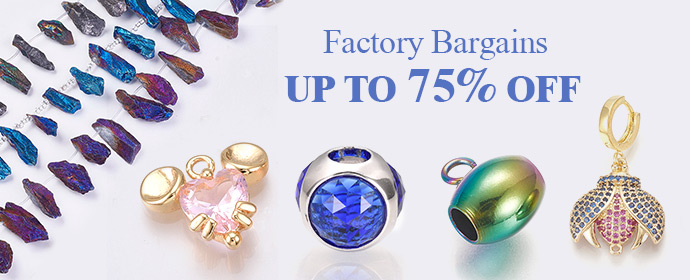The Rise of Family Matching Outfits
In the ever-evolving world of fashion, a heartwarming trend has emerged: family matching outfits. Once reserved for cheesy holiday photos, this trend has evolved into a celebration of unity through clothing coordination. Families around the world are embracing this trend, and in the context of Indian traditional fashion, it takes on a captivating cultural twist.
Why Indian Traditional Fashion?
Indian traditional fashion is a tapestry woven with history, culture, and artistry. It encompasses a breathtaking variety of styles, fabrics, and colors that have deep-rooted significance. By adorning matching traditional outfits, families not only showcase their sartorial elegance but also pay homage to their heritage.
The Delight of Coordinated Styles
Coordinating outfits go beyond just looking good together; it reflects harmony and a shared sense of identity. Imagine the charm of parents and children donning ensembles that complement each other, creating a visual representation of their connection.
Bringing the Family Together Through Clothing
In an era of rapid change, finding ways to connect with our families is precious. Coordinated outfits offer a unique bonding experience. It’s a creative and fun way to strengthen family ties and make lasting memories.
A Journey through Indian Traditional Fashion
The Kaleidoscope of Regional Styles
India’s diverse geography has given birth to an array of regional fashion styles. Each corner of the country boasts unique silhouettes, textiles, and motifs that tell tales of history and culture.
North India
Influenced by the Mughals, North Indian traditional wear often features intricate embroidery and opulent fabrics. Sherwanis and Anarkalis grace the family ensemble.
South India
The regal Kanjivaram sarees and dhotis dominate South Indian fashion. Families can exude elegance in matching silk sarees and veshtis.
East India
Bengal’s rich handloom heritage shines through in its sarees and kurta-pajamas. Coordinating in Tant sarees or Dhakai jamdani sarees reflects the family’s artistic flair.
West India
The vibrant and mirror-work laden outfits of Gujarat and Rajasthan bring out the essence of the West. Families can radiate a boho vibe in their coordinated lehengas andb bandhgalas.
Diverse Fabrics and Embellishments
Silk: The Epitome of Elegance
Silk holds a special place in Indian traditional fashion. Its luxurious texture and natural sheen make it a symbol of elegance and grace. Coordinated silk outfits unify the family in a shimmering embrace.
Cotton: Comfort and Versatility
Cotton, with its breathability and comfort, is the fabric of choice for everyday wear. Coordinated cotton kurtas and sarees not only signify unity but also practicality.
Embroidery and Embellishments: Adding Glamour
Intricate embroidery, beadwork, and sequins elevate traditional outfits to new heights. When families choose matching embellished ensembles, they embody the spirit of festivity.
Colors that Tell Stories
Colors hold cultural and emotional significance in Indian traditions. From vibrant reds symbolizing auspiciousness to serene blues representing divinity, choosing coordinated colors narrates a family’s story.
Read Also: Unusual Vibes Shirt for Men: Embrace Your Unique Style

The Charm of Family Matching Outfits
Symbolism and Unity
Coordinated family outfits carry a profound symbolism. They visually communicate the bond that ties family members together, creating a cohesive unit.
Expressing Togetherness
Matching outfits showcase that the family that dresses together, stays together. It’s a declaration of unity and love, captured in fabric and thread.
Strengthening Family Bonds
In a world filled with distractions, family matching outfits provide an opportunity to bond over a shared experience. The process of selecting, designing, and wearing these outfits becomes a cherished memory.
Breaking Down Gender Norms
Indian traditional fashion is no stranger to gender-specific clothing. However, family matching outfits have the power to break these norms and promote inclusivity.
Inclusivity in Design
Designers are now crafting outfits that transcend gender boundaries. A son can flaunt a traditional anarkali as gracefully as a daughter can wear a kurta-pajama.
Fluidity in Fashion
Fashion is fluid, and family matching outfits reflect this fluidity. It’s a statement that everyone has the freedom to embrace styles that resonate with them, regardless of societal norms.
The Popularity of Festivals and Celebrations
Weddings: A Grand Affair
Indian weddings are grand affairs where traditions come alive through clothing. Coordinating family outfits during weddings adds an extra layer of festivity and elegance.
Diwali: The Festival of Lights
Diwali is a celebration of light’s triumph over darkness. Coordinated outfits illuminate the family’s unity and their enthusiasm for this joyous festival.
Eid and Christmas: Embracing Diversity
Indian culture is a tapestry woven with diverse threads. Coordinating outfits during festivals like Eid and Christmas celebrates this beautiful tapestry of cultures.
Creating Your Coordinated Family Look
Finding the Right Inspiration
When venturing into the world of family matching outfits, inspiration is key. There are numerous sources to explore, ensuring that your family’s style reflects your unique tastes.
Exploring Online Resources
The internet is a treasure trove of ideas. Platforms like Pinterest, Instagram, and fashion blogs offer a plethora of inspiration for coordinating family looks.
Celebrity Influences
Celebrities often set fashion trends. Whether it’s Bollywood stars gracing magazine covers or international celebrities embracing Indian fashion, their styles can spark ideas for your family’s coordinated outfits.
Mixing Tradition with Modernity
Finding the balance between tradition and modernity is an art. Coordinated outfits can successfully merge classic elements with contemporary twists.
Fusion Trends: Where Old Meets New
Fusion outfits combine traditional and modern elements. An example is pairing a classic kurta with trendy jeans, creating a harmonious blend of styles.
Balancing Individuality and Uniformity
While coordinating, remember that individuality matters. Strike a balance where each family member’s unique personality shines while still being part of the coordinated look.
Custom Tailoring vs. Ready-Made
Tailoring: Perfect Fit, Personal Touch
Tailored outfits offer the advantage of a perfect fit. Tailors can customize each outfit to suit individual body types and preferences, ensuring everyone feels confident and comfortable.
Ready-Made: Convenience and Variety
Ready-made outfits save time and effort. They offer an array of designs, colors, and sizes to choose from, making it easier to find outfits that align with your family’s vision.
Accessorizing for Harmony
Accessories add the finishing touch to any outfit, and when it comes to coordinated family looks, they play a vital role in creating a harmonious ensemble.
Jewelry: The Glint of Tradition
Jewelry holds cultural significance and completes the Indian traditional look. Coordinated jewelry choices can tie the family’s outfits together effortlessly.
Footwear: Stepping in Style
Footwear is often the most underrated accessory. Coordinating footwear, whether it’s traditional mojaris or contemporary heels, can enhance the family’s overall appearance.
Hairstyles: Completing the Look
Hairstyles contribute to the overall aesthetic. Coordinated hairstyles, be it traditional buns or modern braids, add the final touch to the family’s ensemble.
Read Also: A Closer Look at David Beckham’s Timepiece: The Elegant TUDOR Black Bay 58 Blue Mens Watch

Showcasing Elegance: Real-life Examples
The Khanna Family: Regal Elegance
The Khanna family’s coordinated outfits ooze regal elegance. Their choice of rich silk ensembles adorned with intricate zari work reflects their appreciation for traditional artistry.
- Rich silk sarees for women with zari border
- Silk sherwanis with detailed embroidery for men
- Minimalistic makeup to let the outfits shine
- Matching accessories that enhance without overwhelming
The Rao-Ramirez Clan: Vibrant Unity
The Rao-Ramirez family radiates unity through vibrant colors and patterns. Their coordinated outfits capture the essence of their multicultural background.
- Coordinated colorful sarees with intricate prints
- Matching patterned kurtas for men and children
- Accessories that reflect the family’s diverse heritage
- A joyful blend of Indian and Latin American influences
The Desai-Chowdhury Tribe: Contemporary Fusion
The Desai-Chowdhury family’s outfits seamlessly fuse classic silhouettes with contemporary prints. Their coordinated look celebrates tradition while embracing the modern world.
- Classic sarees with modern geometric prints
- Kurtas with asymmetrical cuts and digital prints
- Statement accessories like chunky oxidized jewelry
- Hairstyles that blend traditional braids with modern twists
Navigating Challenges and Celebrating Uniqueness
Respecting Individual Preferences
In a family, individual preferences matter. Balancing the desire for coordination with personal choices ensures everyone feels comfortable and happy with their outfit.
- Allow family members to choose their preferred colors from a coordinated palette
- Consider offering options for slightly varied silhouettes to cater to different tastes
Dealing with Sizing and Comfort
Sizing is a concern, especially for growing children. Ensuring comfort and confidence for every family member requires careful consideration.
- For children, opt for adjustable outfits that can accommodate growth
- Choose fabrics that offer flexibility and ease of movement
Overcoming Societal Stereotypes
Traditional fashion can sometimes be accompanied by stereotypes. Embracing family matching outfits challenges these stereotypes and empowers everyone to reclaim their culture.
- Educate others about the significance and diversity of Indian traditional fashion
- Showcase your family’s pride in cultural heritage through your coordinated ensembles
Conclusion
A Journey Worth Embarking Upon
The world of family matching outfits is a fascinating journey that weaves together fashion, culture, and togetherness. By embracing Indian traditional fashion, families not only create stunning visual spectacles but also create cherished memories.
Fashion as a Family Affair
Coordinated family outfits extend beyond the realm of clothing; they become a symbol of shared experiences and unity. The joy of seeing your family members shine together in harmony is an experience like no other.
Preserving Culture and Creating Memories
As the world changes rapidly, preserving cultural heritage becomes paramount. Family matching outfits provide a way to pass down traditions to the next generation while creating beautiful memories that will be treasured for years to come.
FAQs
Q1: How do I choose the right color palette for coordinating family outfits?
A1: Start by considering the occasion. Bright and festive colors work well for celebrations, while subtle tones are ideal for more formal events. Ensure the chosen colors complement each other and resonate with your family’s style.
Q2: Can family matching outfits include extended family members like grandparents and cousins?
A2: Absolutely! Including extended family members adds to the charm of coordinated outfits. It creates a larger canvas to showcase unity and diversity.
Q3: Is it necessary for every family member to wear exactly the same outfit?
A3: Not at all. While matching outfits create a coordinated look, allowing some variations adds depth and uniqueness. For instance, you can have the same color palette but different styles of outfits.
Q4: How can I ensure my child’s comfort in a coordinated outfit?
A4: Children’s comfort is a priority. Opt for soft and breathable fabrics. Additionally, choose designs that allow for ease of movement and consider adjustable features for growing kids.
Q5: Can we create a coordinated look without wearing traditional Indian attire?
A5: Absolutely. Family matching outfits can be adapted to any style, including fusion and contemporary fashion. The key is to reflect unity and togetherness while embracing your family’s unique preferences.
By Sarvan
Image credits to Google
Recommended1 recommendationPublished in apparel, celebrity fashion, Our Fashion Passion, Pop Fashion, street style







